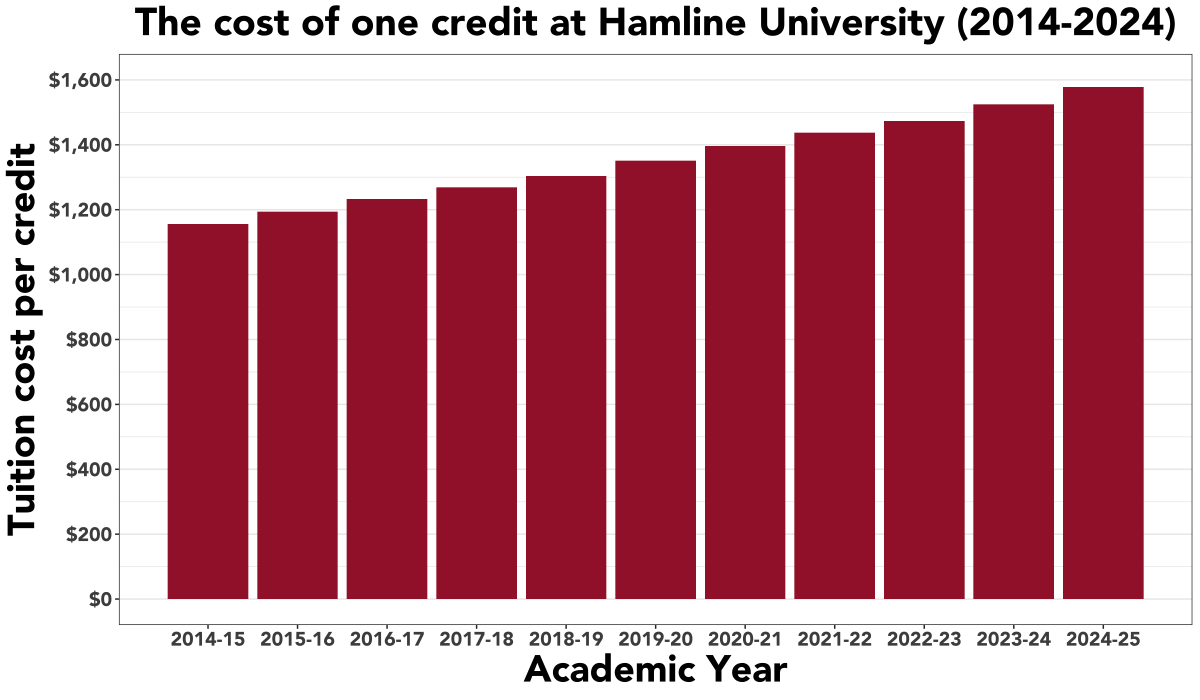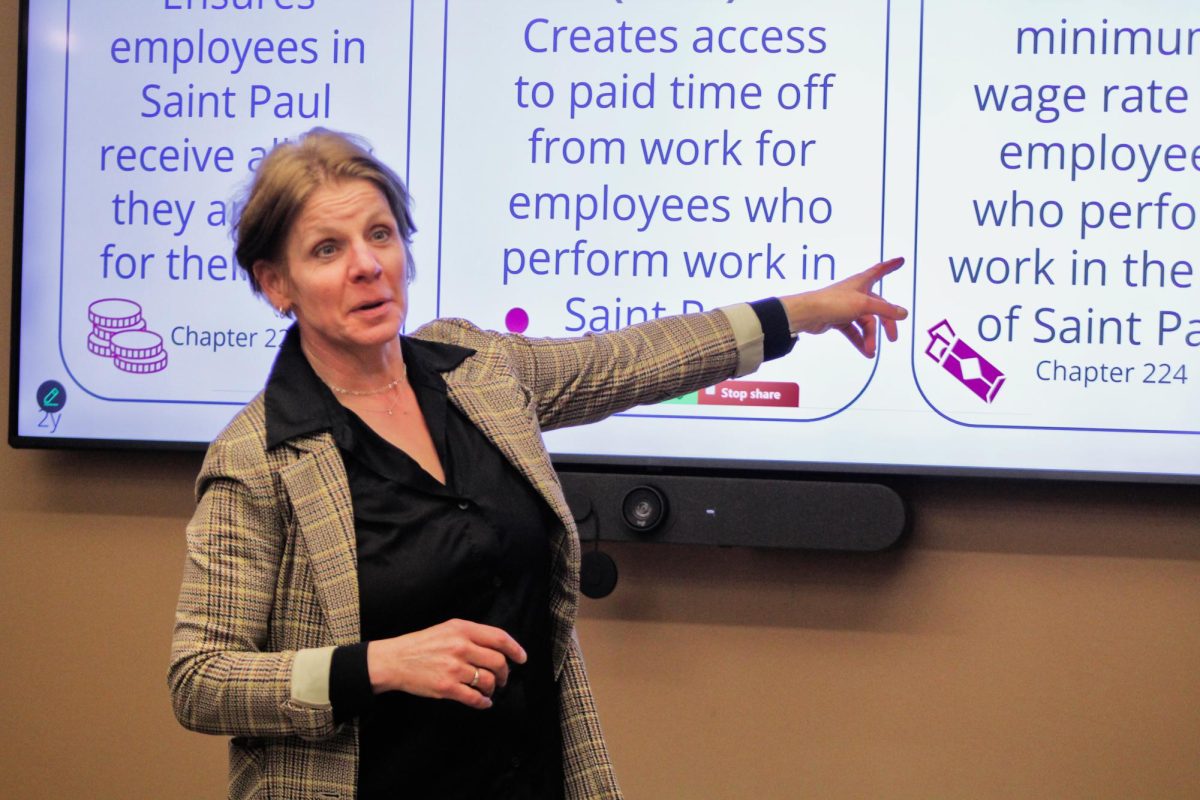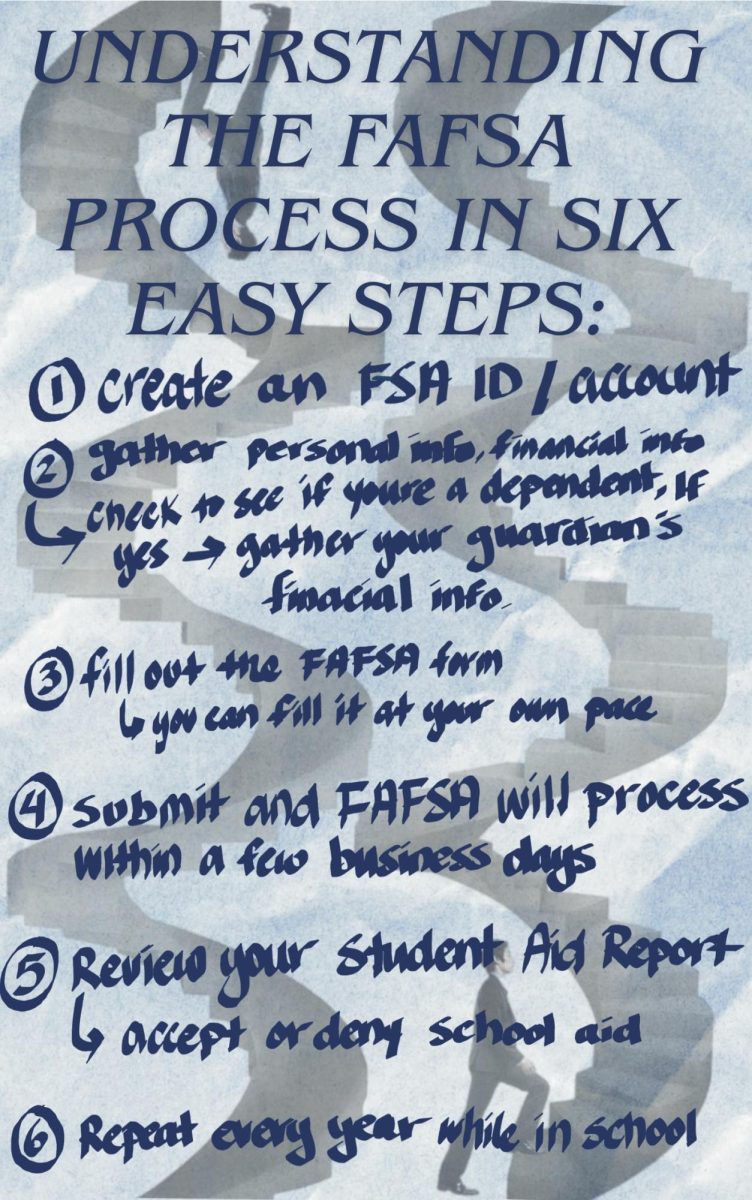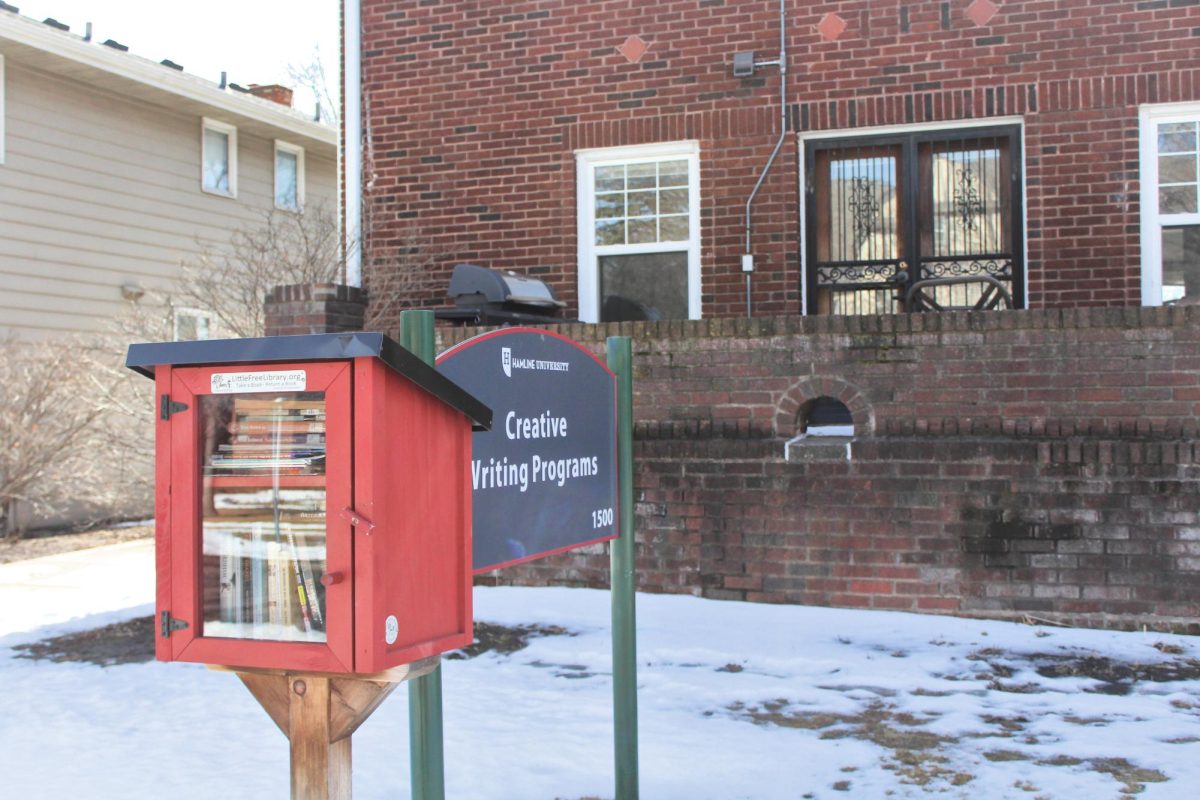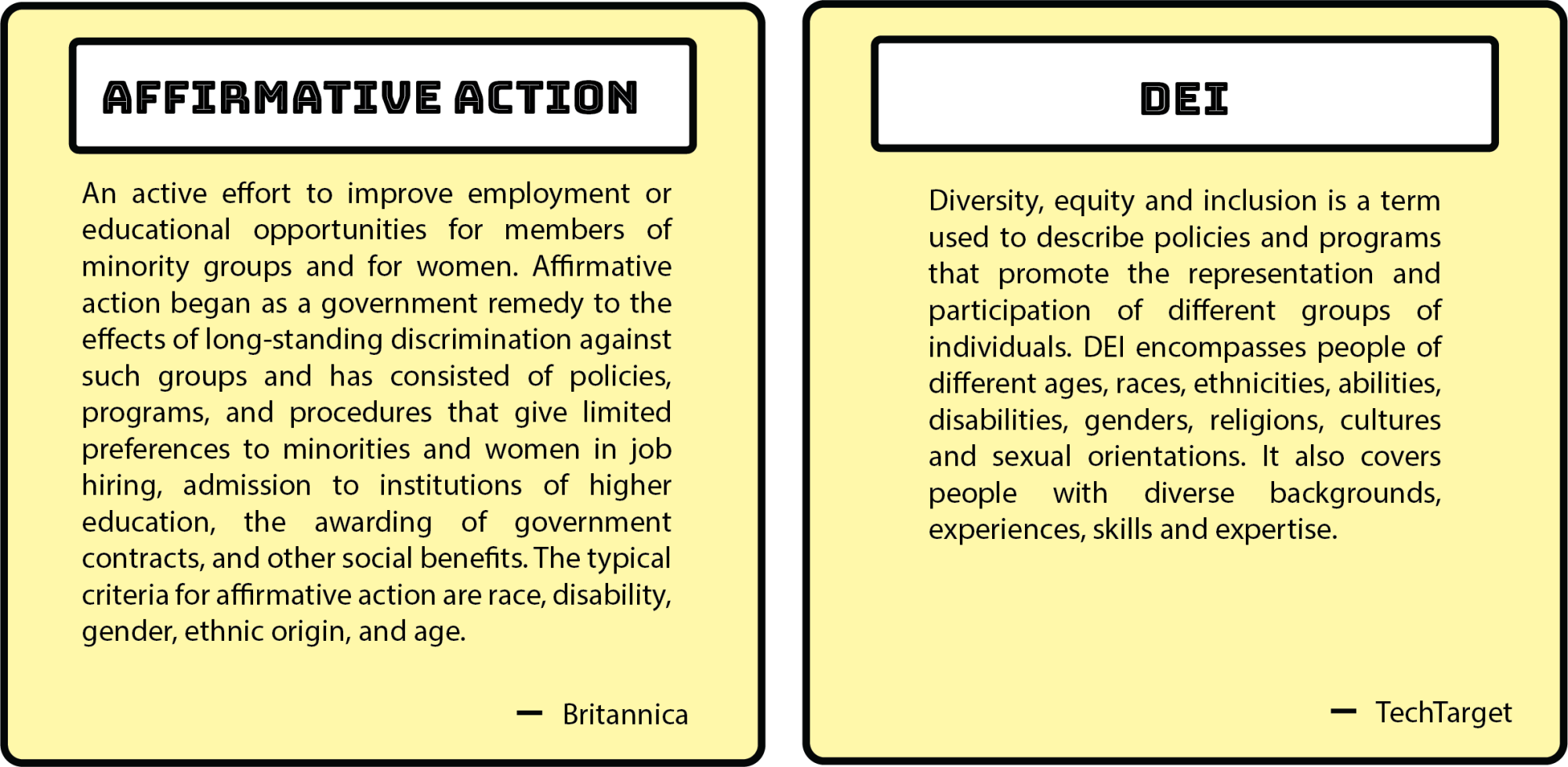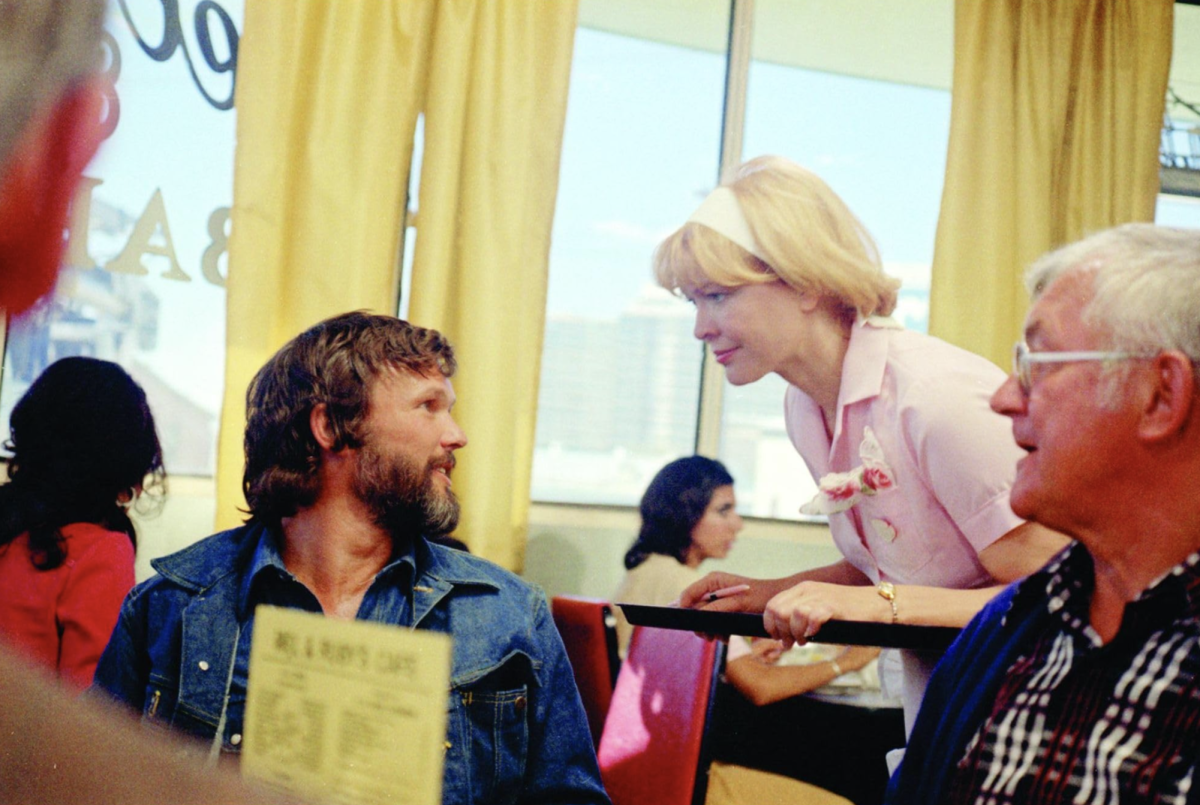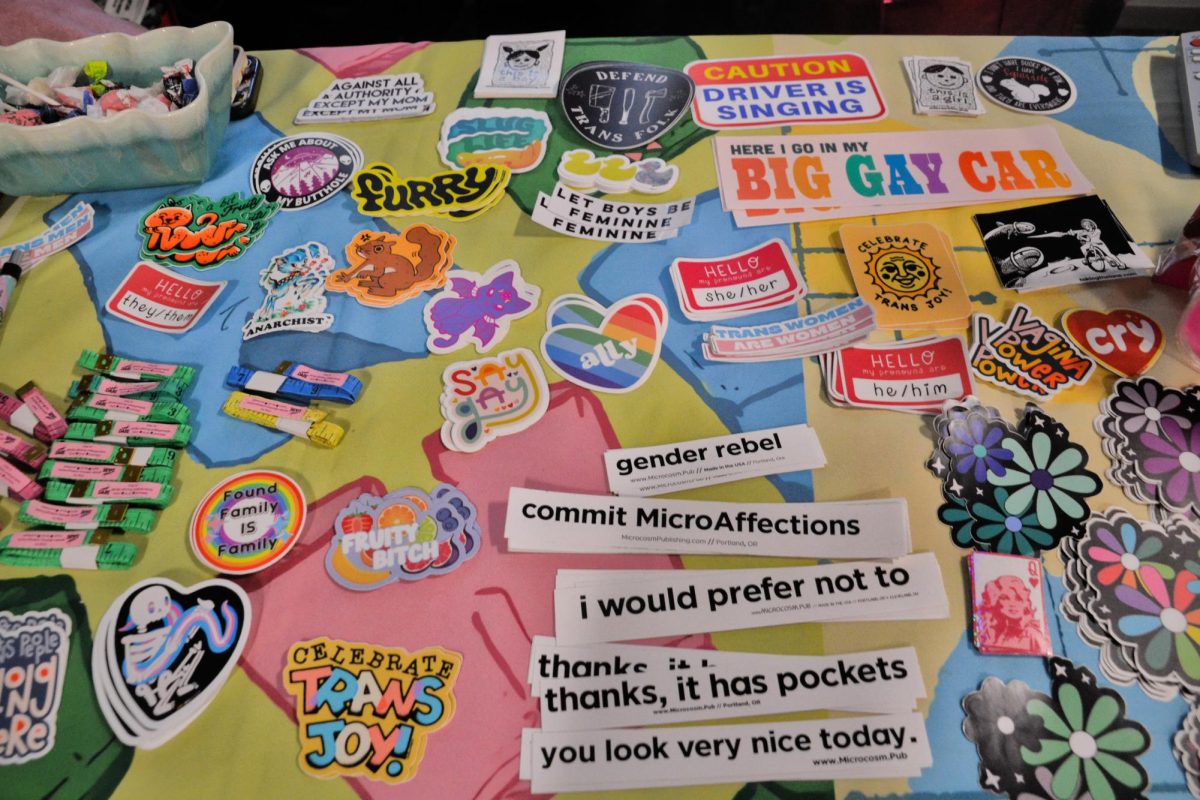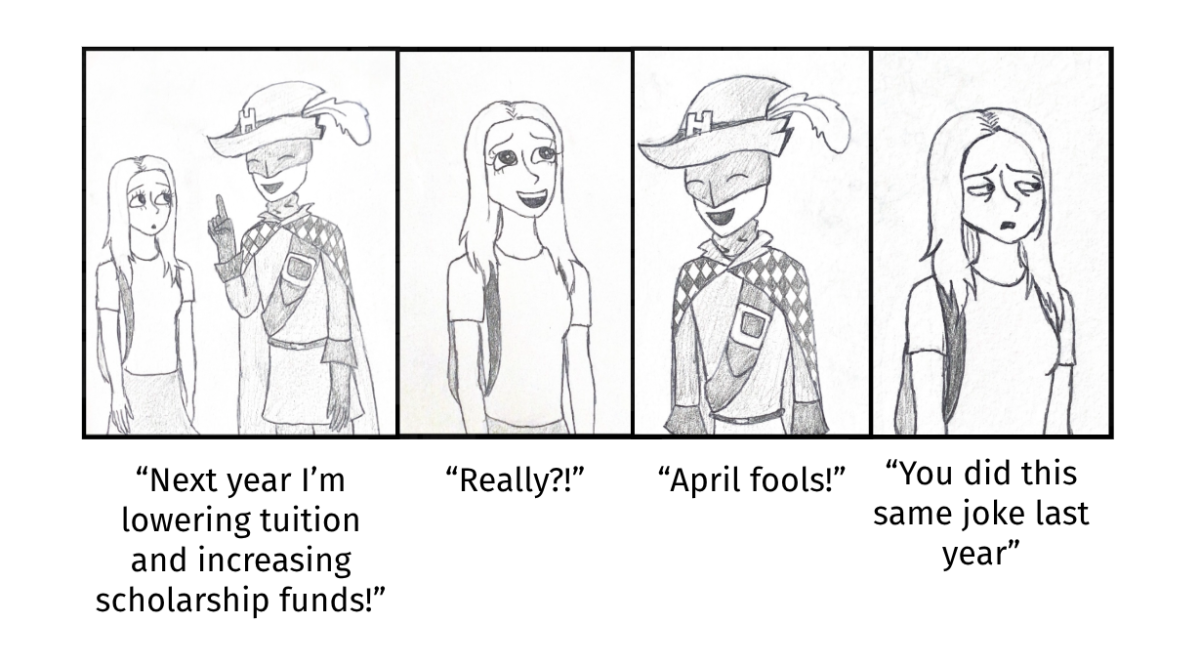As students move through their time in higher education, internships and work-study opportunities have proven to be an integral part of future career development. Providing essential skills, hands-on experience and networking opportunities, internships prepare students to excel in their careers after graduation.
As a part of general education requirements – also called the “Hamline Plan” – students must fulfill a LEAP (liberal education as practice) credit. Students can complete the LEAP credit through internships or work-study programs but must navigate through the registration process for the credit to be awarded.
In March 2023, Hamline University received $2.5 million in federal funding and private donations in an attempt to provide more equitable internship opportunities for students. Of that lump sum, $1 million was provided by the U.S. Department of Education and advocated for by Minnesota representative Betty McCollum.
McCollum also initiated Pipers to Professionals, a program aimed at providing livable wages and support for students working in internships, Pipers to Professionals also garnered support from private donors, whose contributions provided an additional $1.5 million. The program offered students working in an unpaid summer internship a one-time stipend of $2,000, so long as they also registered for two or four LEAP credits. However, with a summer tuition cost of $698 per credit, with an additional $65 book rental fee, students are voicing their concern about what they are promised by the university compared to what they take home.
In the Hamline Undergraduate Student Congress (HUSC) General Assembly on March 5, Residential Housing Association Representative Abigail Carlson shined a light on her own experiences with this discrepancy.
“An issue got brought up in regards to summer pay. They were trying to do something where you get paid for an unpaid internship – which, amazing, great, right? … However, if students want to use that experience as their LEAP credit, you still have to pay for that credit,” Carlson said at the meeting.
Dean of Students Patti Klein-Kersten also attended the HUSC General Assembly. She offered additional information regarding the stipend amount and the number of credits.
“An unpaid internship, one-time for students, is paid $2,000 as long as you are registered. [It] doesn’t matter what the credit amount is,” Klein-Kersten said at the General Assembly.
Carlson expressed that due to a class-free schedule during the summer, she and many other students remain hard at work to earn their money for the entirety of the upcoming academic year.
“While I was lucky enough that my internship was paid, and paid well, a good portion of my earnings for the summer went towards paying for just two credits,” Carlson said.
Ranging from rent to groceries, every penny counts for students, and the cost of credit could be the deciding factor for students living in financially difficult situations.
“It makes it really tough. A lot of the time an internship is also a learning setting and doing that during school, if it’s part time, is doable,” Senior Mercedes Duncanson said. “But it’s not easy. … Expecting students to do it in off-seasons or taking off [from] courses instead … students who are not financially stable; it puts a real strain on them.”
Duncanson, an accounting and analytics major, also highlighted that certain majors hold different requirements for internships, making it more difficult for students applying to internships for the first time.
“One of my issues with getting an internship is that … in accounting you’re expected to take your semester off,” Duncanson said. “It extends your [attendance at] school by an entire semester. You don’t get aid for the semester you’re taking the internship because you are only taking four credits.”
Hamline is unique in that internships are concretely built into the university’s internal structure. The LEAP credit allows students to cultivate and shape their careers to best fit their goals, but as needs grow, students still wonder if it is worth the hardship.
“You’re paying for the letter, not [for] the experience,” Carlson said.
The hidden cost of credits
Students voice their concerns regarding internship opportunities on campus.
Alex Bailey, Junior News Editor
March 26, 2024
Over 10 years, the cost of tuition for Hamline students has grown steadily. Using tuition data from the Integrated Postsecondary Education Data System (IPEDS) and hamline.edu, we found that the cost per credit during the Spring and Fall semesters corresponds with an enrollment in around 15 credits per semester.
Story continues below advertisement
0
More to Discover

